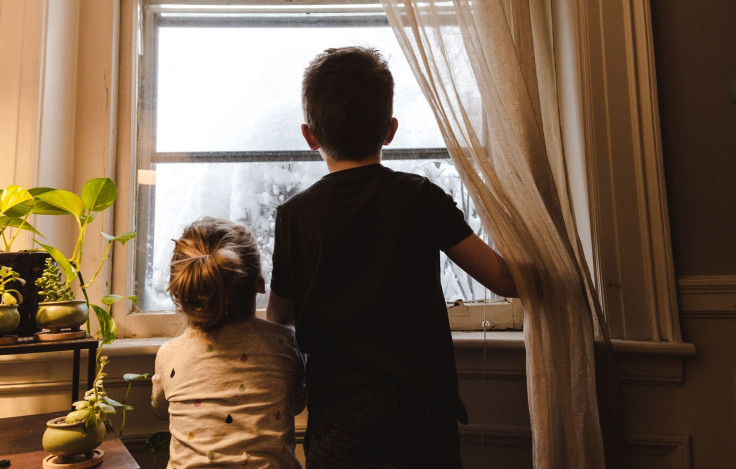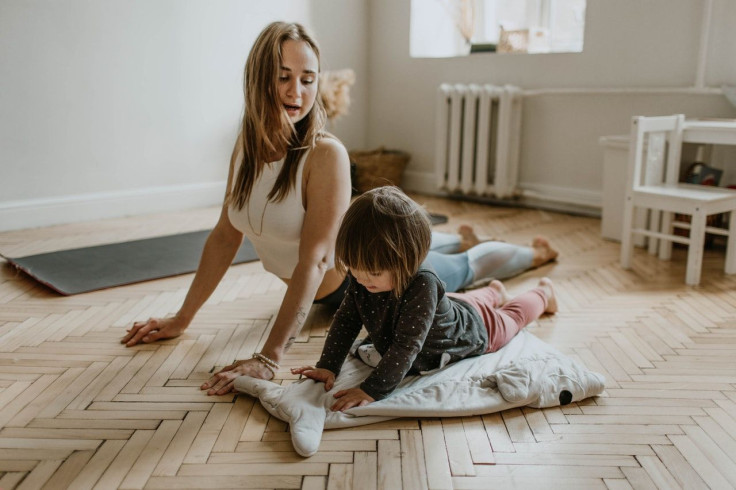How To Keep Kids Physically And Mentally Active Amid Stay-at-Home Orders
KEY POINTS
- Stay-at-home orders due to the coronavirus outbreak may be proving difficult for your kids
- You can help your kids stay physically and mentally active amid the COVID-19 outbreak
- Experts offer tips on how you can achieve these things
Stay-at-home orders in light of the coronavirus pandemic may be difficult for kids used to spend their physical and mental energy outside their houses. This is particularly true for some states where normal outdoor activity is prohibited for the time being. Most parents might find it worrisome that the screen time of their kids nowadays are way higher than they would like due to the present circumstances.

In such a case, the greatest concern would be the implications on the physical and mental health due to lack of outdoor activities. In urban environments, where access to green space is temporarily suspended, parents need to think of ways on how to let keep their kids physically and mentally active.
A Need For Green
Dozens of scientific studies have established the link between mental health and nature. One specific study has underscored the fact that enjoying green space during childhood has lasting benefits into adulthood.
Although the results of such a study may appear unsettling at a time like this when kids cannot spend time outside your home, try to remember stay-at-home orders are temporary. For now, what is important is for you to know how your kids are coping with the situation and try to devise strategies that could help.
Focus On What You Can Control
Kids, like adults, are also having a hard time with the loss of control. With no end in sight for the COVID-19 pandemic, mental health experts are predicting a shift in how kids look at the situation. According to a licensed professional counselor and school psychologist, Roseann Capanna-Hodge, kids will begin to feel more depressed and sad at the realization that this will not be over soon.
For Jennifer Weniger, a Loma Linda University associate professor of behavioral health, it is natural for your kids to experience sadness and depression during this period. You may start noticing your kids starting to lose motivation for doing chores and lose interest in talks about school. Complaints of boredom may also be raised by your kids. It might actually be a cover for deeper feelings. Like adults, your kids also are having a hard time with the lack of control everyone is facing. “This is where it’s important to shift focus to the things you can control,” according to Capanna-Hodge.
Get Your Kids To Talk About What They Feel
Children need to be constantly in touch with their feelings. You can encourage your kids to talk about what they feel. Weniger said it is important you show them you are always there to support them. The behavioral health professor also said you need to be careful what you talk about are their feelings and not yours.
How do you do it? As a start, you can try building a loose routine because such structures can be calming and also provide your kids with a sense of purpose. Try not to worry as there is no standard recipe for such a thing and will always be different for every family.
Just remember that your kids also need to have a say in how they spend their day. According to Capanna-Hodge, empowering your kids through choice is vital to their mental health and also provides them some control. “This is not a time for dictatorship in the home,” Capanna-Hodge said.
Set Aside Time For Movement, Meditation, And Breaks
Parents should also temper down their own expectations of their kids. While your kids may be attending online school instructions, bear in mind that they are not made to sit still for six hours. This means you need to set aside time for some movement and breaks in their days.
You can try out some power dance or family fitness sessions with your kids and make sure to make it as fun as possible. Remember that if you show a good and positive attitude to kids, this will rub off on them. If you want, you can also do some meditation and breathing exercises with your kids during their break time. There are lots of meditation videos and apps that you can watch or download for free, so this may be a good time to have them.

Provide Autonomy To Your Older Kids In Structuring Their Days
Young adults and teenagers have struggles that are different compared to younger kids. Most of them want autonomy, and the present situation is denying them that. In addition, they are also suffering from a sudden loss of independence. You can try to talk to them using a positive language, and you also need to allow them enough leeway to structure their days.
This does not mean, however, that you give them complete control as you might find them going out of your house in violation of stay-at-home orders. You can emphasize what are non-negotiables as this is vital to their overall well-being. You can set some limits and boundaries but never attempt to punish them by locking them out of the Internet, for instance. “This is their access to socializing right now, and they need that,” Capanna-Hodge said.
A Different Time
Finally, remember that your kids grew up at a different time from yours, which means they may not have much idea on how to have fun other than screen time. Huddle with your kids and come up with some creative and physical activities.
Despite all efforts, however, you may see signs that your kids may really be having a hard time and is truly in trouble. In this case, you might want to seek the services of a professional through online or digital means. Some of these signs include having too much or too little sleep, persistent sadness or bad mood, or lack of engagement. All of these tell you already need outside intervention. According to Weniger, you should take your child to a professional in case the situation gets worse. “There are many good telehealth services you can access,” Weniger said.
© Copyright IBTimes 2024. All rights reserved.





















